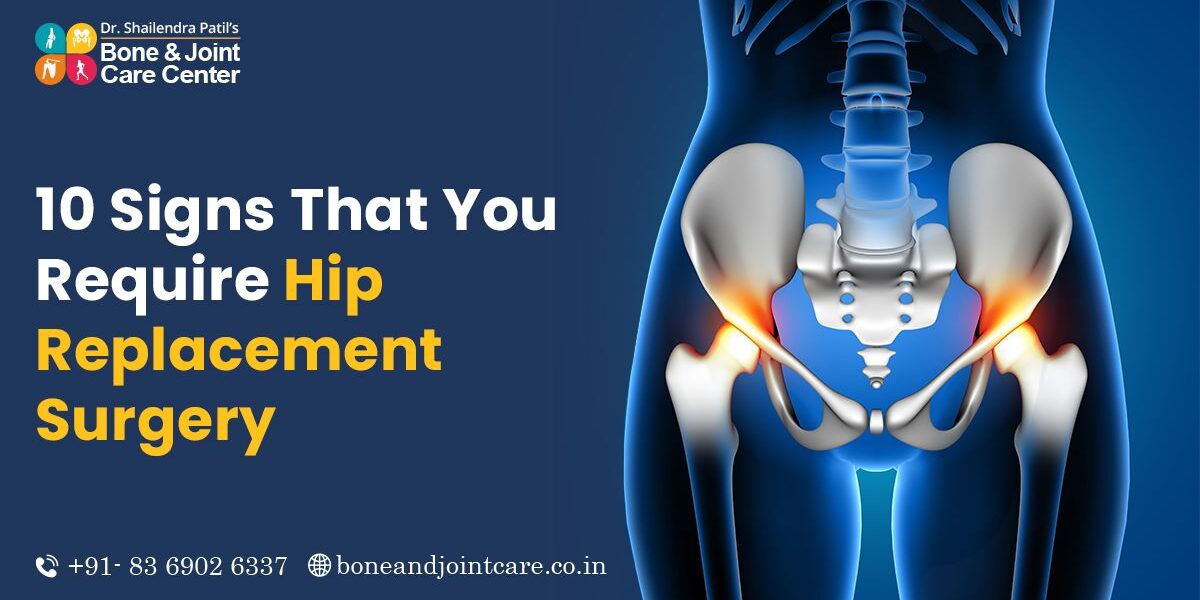Trauma is the main cause of hip injuries like fractures and strains. Doctors recommend hip replacement surgery to people with hip injuries when non-surgical treatments fail to alleviate hip pain. This hip surgery can help people with hip injuries to relieve pain and increase quality of life.
A person may also develop a hip injury due to various reasons. Here you can learn about the signs indicating when you need hip replacement surgery. Moreover, after hip replacement surgery, you need to go through a rehabilitation program. It helps you regain your strength and range of motion.
What is Hip Replacement Surgery?
Hip replacement surgery is a medical procedure as a treatment for hip joint injury. Doctors perform this surgery to replace the damaged hip joint with an artificial one. They use prostheses that are designed to mimic the shape and function of a healthy hip joint. The result of this surgery includes improved mobility and reduced pain. You can visit Bone and Joint Care for hip replacement surgery. They provide comprehensive care for patients undergoing hip replacement surgery. It includes pre-operative evaluations, personalized treatment plans, and post-operative rehabilitation programs.
Signs and Symptoms That Indicate the Need for Hip Replacement Surgery
Here are the signs that indicate you need hip replacement surgery to improve your hip health, including:
- Severe Hip Pain
Persistent and severe pain in the hip joint that limits your daily activities. If it affects your quality of life, you should see a doctor.
- Limited Range of Motion
Visit Bone and Joint Care if you have difficulty moving your hip joint fully. It can also lead to decreased flexibility and mobility.
- Difficulty Performing Daily Activities
Another sign of declining hip health is struggling with activities such as walking or climbing stairs due to hip pain.
- Chronic Hip Stiffness and Swelling
Constant stiffness and swelling in the hip joint make it challenging for you to move and cause discomfort.
- Inadequate Pain Relief from Non-Surgical Treatments
Non-surgical treatments like medication, physical therapy, or injections are no longer effective in pain relief.
- Hip Joint Damage or Degeneration
Look for X-rays or other imaging tests that reveal significant damage or degeneration in the hip joint.
- Hip Fracture or Injury
A hip fracture or severe hip injury due to an accident or fall that has not healed properly and continues to cause pain and functional limitations is the sign.
If you have advanced osteoarthritis in the hip joint characterized by cartilage deterioration, and joint inflammation, you must consult with a Hip Replacement Surgeon In Mumbai for surgery.
Progressive autoimmune conditions like rheumatoid arthritis can severely affect the hip joint. So, if you have this condition, consider seeing an orthopedic doctor.
- Failed Previous Hip Surgeries
If previous hip surgeries or treatments have not provided the desired relief or improvement in hip function, visit Bone and Joint Care, as they provide the best surgeon.
Conclusion
Look out for signs and get hip replacement surgery as soon as possible. Choose the right hip replacement surgeon that offers the best possible care for your hip condition. The Hip Replacement Surgery Cost In Mulund, Mumbai, can vary depending on several things, including the medical center you chose, the type of prosthesis, the surgeon’s fees, and more.







